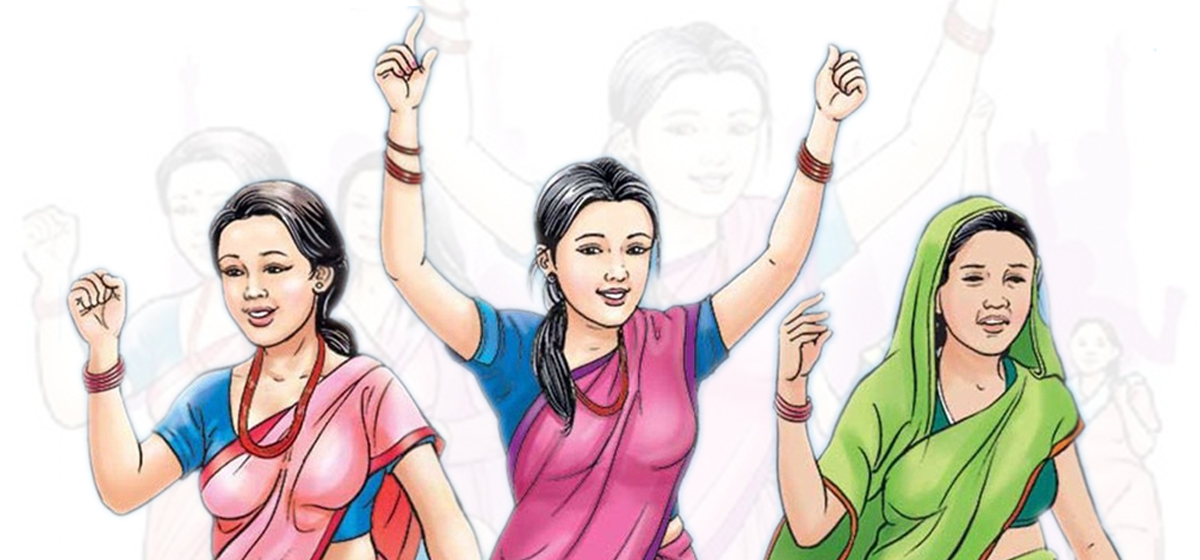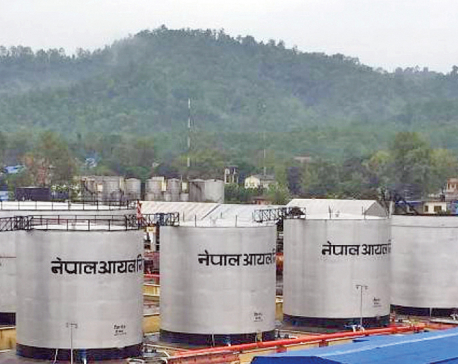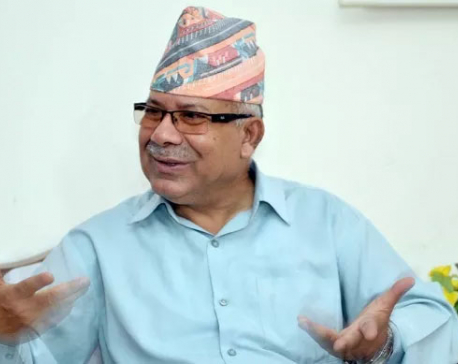
OR
Women's rights only on paper, law-enforcement limited to cities
Published On: July 3, 2022 03:20 PM NPT By: Dinesh Subedi

ROLPA, JULY 3: Kali (name changed) from Rolpa fell into the trap of government security personnel who had entered her village in 2059 BS looking for the Maoists.
She faced abuse in the name of the Maoists and was raped when she was barely 17. She was gangraped by six Nepal Army soldiers overnight. She has received neither justice nor relief. The government doesn’t even consider her as a conflict victim.
A few years after she was raped, Kali married a boy from a neighboring village. She gave birth to five children in as many years, but she only has two daughters now. After hearing from external sources that her wife had been raped before she met him, her husband would ofteh scratch her old wound and exacerbate her pain.
Dozens of mentally-deranged women like Kali are still living under the fear of their past. When issues such as women's rights, equality and equity are limited to urban speeches, women in the remote areas are still forced to live hellish lives.
Paru (changed name), 21, from Rukum had a love marriage. Paru's in-laws got angry that their son had an inter-caste marriage and went to India for labor. Shortly after getting married, she became pregnant. She gave birth to a son. After the birth of the child, Paru's husband left for India, saying that he would work in India but convince his parents to return to Nepal. The in-laws returned to Nepal with the news of their son’s (her husband) death. Paru, a nursing mother, was abused by her in-laws who blamed her for their son’s death. When the situation got worse, she reached her maternal home but she was not given importance because she had a love marriage.
She didn’t get shelter there saying she had not completed 45 days of mourning her husband’s death. Paru had to come to the district headquarters barefoot, carrying her six-month-old baby. She has been making her ends meet with the support of some organizations working for women.
Crimes like rapes draw everybody’s attention in cities and urban areas but no one talks about the violence and torture against women taking place in the rural and remote villages. It is also alleged that the thinking of women who have reached high-ranking posts under reservation quotas has become patriarchal.
Women in remote areas like Rolpa and Rukum, ravaged by the decade-long Maoist conflict are still subjected to domestic violence. Neither the local governments nor the local administration care about their sufferings.
“Domestic fights are like straw fire,” said one police officer, “They fight today and forget tomorrow.”
Paru and Kali are just examples to prove that those who raise their voices for women’s rights in the cities are totally unaware of the pathetic situation of women’s rights in the rural and remote villages. Voices that speak against consensual sex that eventually becomes a rape after a disagreement don’t speak for Kali and Paru. Any violence and abuse against women is always illegal for everyone but at this time even the long arms of the law have not been able to get out of the cities and reach the villages.
“Fights for rights have become city-oriented. Rights that the privileged ones take for granted hardly reach the doorsteps of the poor,” a women’s rights activist says, “Patriarchal thinking has already started affecting some women.”
The perpetrators and victims of various forms of violence in the remote villages are reconciled in the traditional style in the name of the judicial committees of the local governments. Heinous crimes such as attempted rape, witchcraft, and extreme domestic violence should be taken seriously by the local governments.
You May Like This

NOC slashes price of petrol by Rs 7 per liter, diesel and kerosene by Rs 5 per liter
KATHMANDU, May 15: Nepal Oil Corporation (NOC) has announced a significant reduction in the prices of petrol, diesel and kerosene. Read More...
_20201014060614.jpg)
Nepal abstains from voting as UNHRC adopts resolution against Sri Lanka's human rights record
KATHMANDU, March 23: Nepal has chosen to abstain from voting in the United Nations Human Rights Council on a resolution... Read More...

Party's name will be Nepal Communist Party after merger: Leader Nepal
KAILALI, Feb 9: CPN-UML leader Madhav Kumar Nepal said that the name of the new party after merger between CPN-UMLand... Read More...






Just In
- Challenges Confronting the New Coalition
- NRB introduces cautiously flexible measures to address ongoing slowdown in various economic sectors
- Forced Covid-19 cremations: is it too late for redemption?
- NRB to provide collateral-free loans to foreign employment seekers
- NEB to publish Grade 12 results next week
- Body handover begins; Relatives remain dissatisfied with insurance, compensation amount
- NC defers its plan to join Koshi govt
- NRB to review microfinance loan interest rate











Leave A Comment